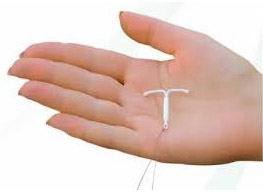
ARCH FOUNDATION PATIENT ASSISTANCE PROGRAM FOR MIRENA® ARCH Foundation, P.O. Box 220908, Charlotte, NC 28222-0908 Telephone: (877) 393-9071 Fax: (877) 229-1421 Please complete each section to the fullest extent possible. If an item does not apply, please note “N/A” on that line.
Full Answer
Important Note
The following information is intended to supplement, not substitute for, the expertise and judgment of your physician, pharmacist or other healthcare professional. It should not be construed to indicate that use of the drug is safe, appropriate, or effective for you. Consult your healthcare professional before using this drug.
Uses
This product is a small, flexible device that is placed in the uterus and is used to prevent pregnancy. The device works by slowly releasing a hormone (levonorgestrel) and is used in women who desire long-term (up to 5 years) and reversible birth control.
How To Use
This product is inserted into your uterus by a properly trained health care professional usually once every 5 years, or as determined by your doctor. The medication in the device is slowly released into the body over a 5-year period. If birth control is still desired after 5 years, the device may be replaced with a new one.
Side Effects
Irregular vaginal bleeding (e.g., spotting), cramps, headache, nausea, breast pain, acne, rash, hair loss, or weight gain may occur. If any of these effects persist or worsen, notify your doctor.
Precautions
This medication is not recommended for use if you have any of the following medical conditions: pregnancy or suspect you are pregnant, uterine problems (e.g., cancer, endometriosis, fibroids, pelvic inflammatory disease or PID), vaginal problems (e.g., infection), liver disease or tumors, disease affecting your immune system (e.g., AIDS, leukemia), breast cancer, previous ectopic pregnancy, other IUD (intrauterine device) still in place.
Drug Interactions
Tell your doctor of all prescription and nonprescription medication you may use, especially: "blood thinners" (e.g., warfarin), oral contraceptives. Do not start or stop any medicine without doctor or pharmacist approval.
Overdose
Overdose with this medication is not generally suspected because of the way the drug is released from this device. Consult your doctor or pharmacist.
ARCH Patient Assistance Program for Mirena and Skyla
Bayer, the maker of Mirena and Skyla, has its own financial aid program. You are eligible to apply if:
Medicaid and Children's Health Insurance Program (CHIP)
Medicaid offers free to low-cost insurance for low-income earners, and if you bring that insurance to a public health clinic like Planned Parenthood, you should be able to get free to low-cost birth control.

Important Note
- Bayer HealthCare Pharmaceuticals was founded by Friedrich Bayer and Johann Friedrich Weskott in Barmen, Germany, 1863. Bayer HealthCare Pharmaceuticals developed Aspirin, one of the most common and widely used drugs to date, along with several other's over the last century. As a wo…
Uses
How to Use
Side Effects
Precautions
- This product is a small, flexible device that is placed in the uterus and is used to prevent pregnancy. The device works by slowly releasing a hormone (levonorgestrel) and is used in women who desire long-term (up to 5 years) and reversible birth control. This product is only intended for use in women who have previously given birth, have only one ...
Drug Interactions
- This product is inserted into your uterus by a properly trained health care professional usually once every 5 years, or as determined by your doctor. The medication in the device is slowly released into the body over a 5-year period. If birth control is still desired after 5 years, the device may be replaced with a new one. If birth control is no longer desired at any time, the device may …
Overdose
- Irregular vaginal bleeding (e.g., spotting), cramps, headache, nausea, breast pain, acne, rash, hair loss, or weight gain may occur. If any of these effects persist or worsen, notify your doctor. Tell your doctor immediately if any of these serious side effects occur: lack of menstrual period, fever, chills, stomach pain, trouble breathing, mental/mood changes, decreased interest in sex, vaginal …
Notes
- This medication is not recommended for use if you have any of the following medical conditions: pregnancy or suspect you are pregnant, uterine problems (e.g., cancer, endometriosis, fibroids, pelvic inflammatory disease or PID), vaginal problems (e.g., infection), liver disease or tumors, disease affecting your immune system (e.g., AIDS, leukemia), breast cancer, previous ectopic pr…
Storage
- Tell your doctor of all prescription and nonprescription medication you may use, especially: "blood thinners" (e.g., warfarin), oral contraceptives. Do not start or stop any medicine without doctor or pharmacist approval.